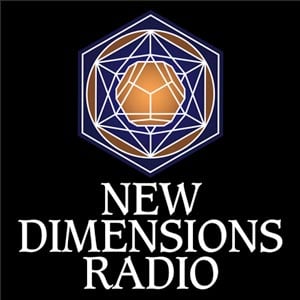Hosted by: Justine Willis Toms
Has our present economic system been designed for another age? Does it truly serve the needs of the 21st century world? What are the stepping stones to a new economic structure? The answers to these and many other questions are addressed in this informative dialogue. In taking out a loan or a mortgage under the current system, Lietaer and Dunne point out, “When you pay back interest, you’re actually using someone else’s principle. We are fighting for money that has not been created.” They go on to describe some very successful examples of complementary or cooperative currencies that are being successfully implemented today on some very large scales. For example: Frequent Flyer Miles, the Japanese Fureai Kippu (care of the elderly), TimeBanking, the WIR in Switzerland, the Banjar system in Bali, and many more. What these currencies do is link unused resources with unmet needs. That is why they are so successful. They describe a time when banks closed in Ireland for months at a time and Credit of Guinness became the vehicle of exchange. They also describe what led to the demise of the culture of the !Kung people in Africa. These people had been living sustainably for thousands of years. However, their society broke down in one generation after conventional money was introduced to their culture. You’ll also hear the inspiring story of the people of Curitiba in Brazil who turned garbage into a commodity and cleaned up their town, creating new jobs and prosperity. They make the case that a single currency does not allow for resilience. It is actually quite fragile and that is why we need a diversity of currencies to make a robust economic system as we move from the old industrial society to a brighter future. (Hosted by Justine Willis Toms)
Bio
Bernard Lietaer has an extensive background in all facets of money and economics both local and global. He’s a Research Fellow at the Center for Sustainable Resources of the University of California at Berkeley. He’s studied and worked in the field of money for more than 30 years as a Central Banker, a fund manager, and a university professor. He’s a consultant to governments, multinational corporations, and community organizations. He co-designed and implemented the convergence mechanism to the single European currency system known as the Euro. Jacqui Dunne is an award-winning journalist from Ireland, now residing in Colorado, and is currently CEO of Entrepreneurs without Borders, an organization that supports emergent, socially conscientious, and profitable technologies. She has worked as a content editor of Money and Sustainablity—The Missing Link, A Report from the Club of Rome and has served as guest host of New Dimensions Radio.
He’s the author of:
- The Future of Money: New Ways to Wealth, Work and a Wiser World (Random House 2002)
They are the co-authors of:
- Rethinking Money: How New Currencies Turn Scarcity Into Prosperity (Berrett-Kehler Publishers 2013)
To find out more about Susan Sachs Goldman’s work go to www.highmarkpress.com.
Topics Explored in this Dialogue
- What is money and what is its history
- How is money created
- What is the current situation of money
- What are complementary and cooperative currencies
- How a demurrage (penalty for hoarding) helps keeps currencies flowing
- What happened when banks in Ireland closed their doors for months at a time
- How did the people of Curitiba Brazil create sustainable prosperity with alternative currencies
- What happened to the !Kung people of Africa when conventional money was introduced to their society
- Why we need more than a single currency
- How will technology help support cooperative and complementary currencies
- How the new currencies require a balance between masculine and feminine energies
- Why having transparency and accountability is necessary for success in cooperative currencies
Interview Date: 3/12/2013 Program Number: 3466





